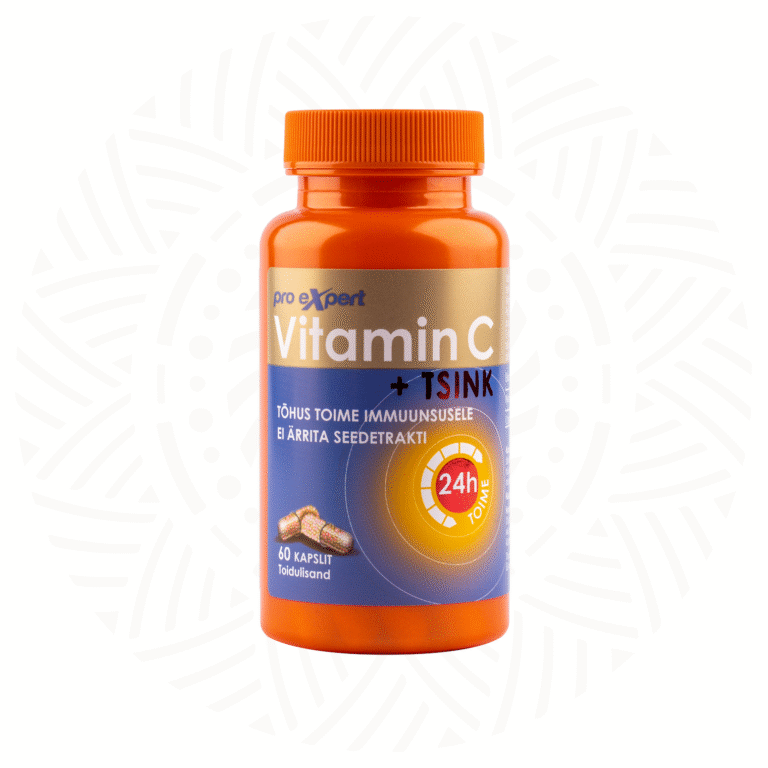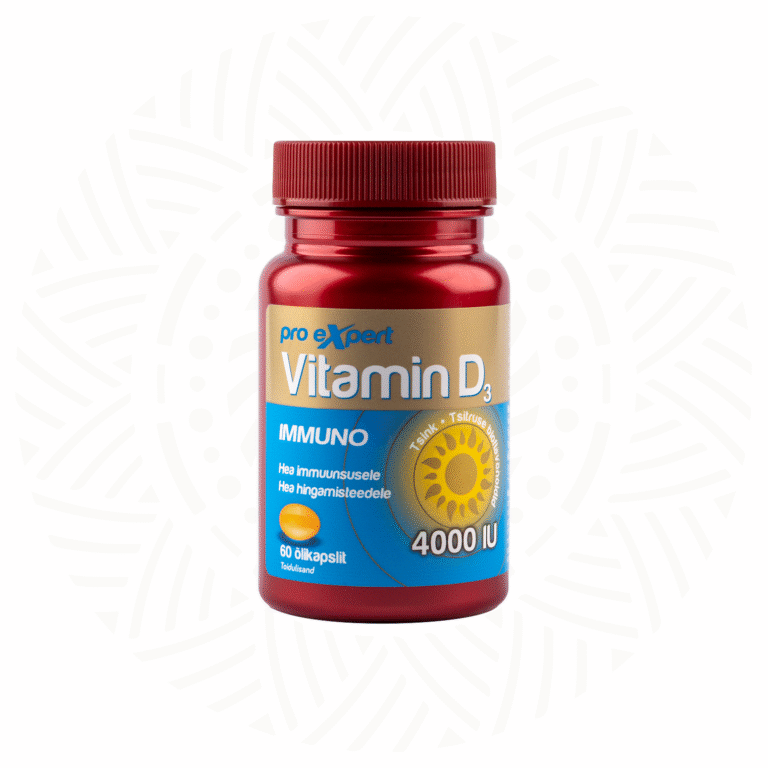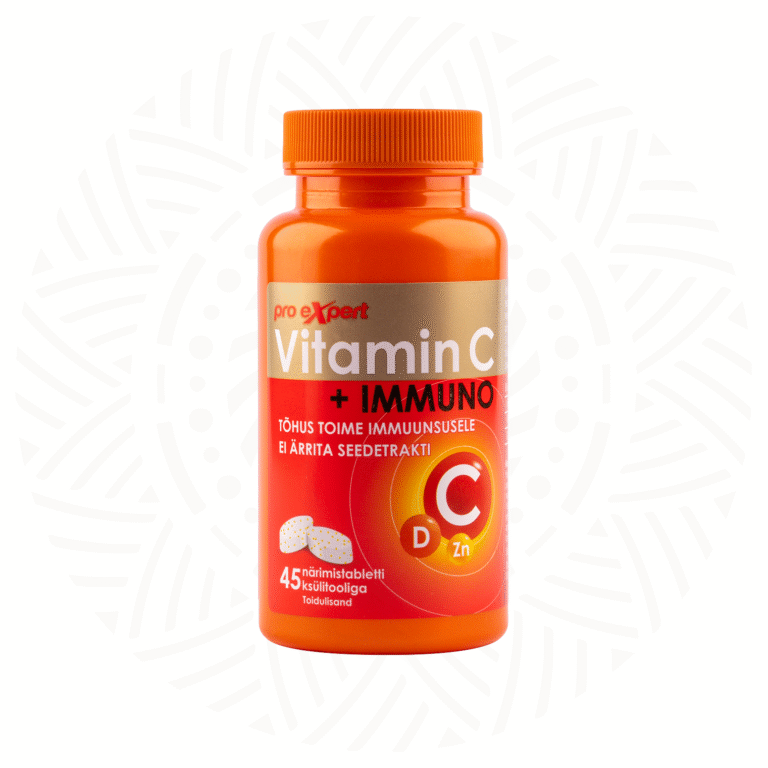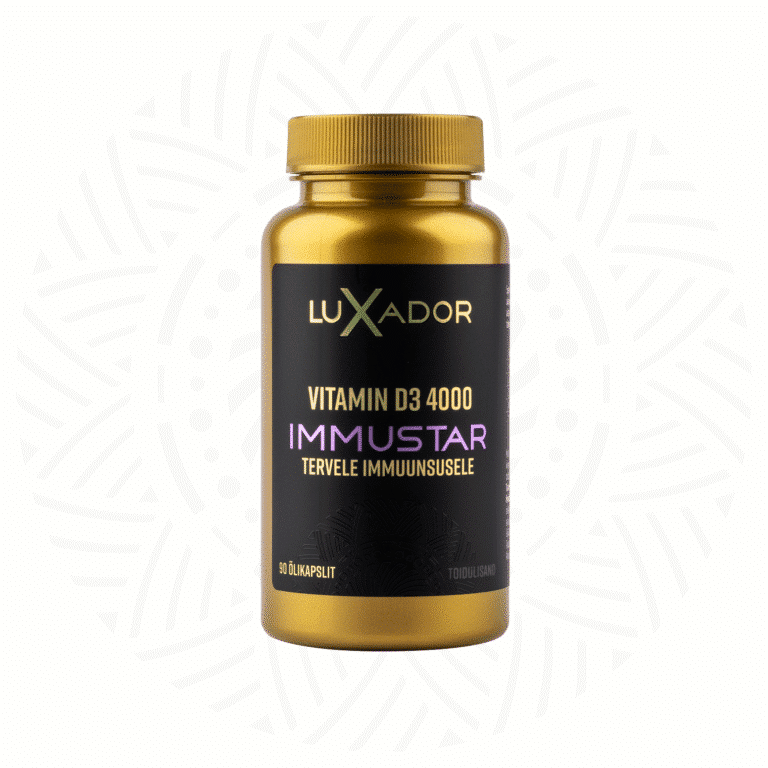Zinc is an essential mineral that supports cell development, skin health, and wound healing. But that’s just the tip of the iceberg! Zinc effectively helps fight infections, aiding in the prevention of colds and promoting faster recovery. Additionally, zinc plays a crucial role in maintaining sharp vision.
It is important to know that the human body cannot produce or store zinc for long periods. Therefore, zinc must be regularly obtained from food or supplements to prevent zinc deficiency. Below, we explore which zinc supplement to choose to effectively support good health and appearance at any age.
What Is the Daily Zinc Requirement?
Zinc requirements increase during growth, illness, stress, physical exertion, pregnancy, and breastfeeding when tissue renewal is more active. The recommended daily prophylactic zinc intake is:
- 1 – 3 years old: 7 mg of zinc per day
- 4 – 6 years old: 10 mg of zinc per day
- 7 – 10 years old: 13 mg of zinc per day
- 11 – 14 years old: 18 mg of zinc per day
- 15 – 17 years old: 22 mg of zinc per day
- Adults: 25 mg of zinc per day
For adults, the safe long-term therapeutic dose of zinc is 25 – 50 mg per day. Zinc, when taken in therapeutic doses, supports the healing process, combats inflammation, accelerates recovery, and aids in treating skin and infectious diseases. The therapeutic short-term dose of zinc is 75 mg per day.
Which Zinc Is Best?
When choosing zinc, always check the product label, as zinc is available in different forms. Some forms are inorganic, such as zinc oxide, zinc sulfate, and zinc carbonate. The downside of inorganic zinc is its low bioavailability and a higher risk of side effects like diarrhea or nausea.
However, there are also organic zinc compounds, such as zinc citrate, zinc gluconate, zinc picolinate, and zinc lactate. Organic zinc forms have effective absorption and bioavailability. Better bioavailability means the body can absorb and use organic zinc forms more efficiently. Additionally, organic zinc is well tolerated by sensitive digestive systems and does not cause gastrointestinal disturbances.
Which Form of Zinc to Choose?
Pharmacies offer a wide range of zinc supplements – swallowable zinc tablets, zinc lozenges, liquid zinc (zinc spray), and zinc capsules. Zinc is available both in pure form and combined with health-supporting vitamins. When choosing the right zinc supplement, consider whether you only need to correct a zinc deficiency or want additional benefits for immune support. In the latter case, it is worth considering a zinc supplement combined with vitamin C or vitamin D.
Next, we explore which health conditions benefit from zinc supplementation in combination with vitamin C and vitamin D.
Which Zinc to Choose for Immune Support?
Did you know that in Estonia, adults catch viral infections on average 2-3 times a year, while children fall ill 6-12 times a year? A mild sore throat can become a persistent issue, keeping you bedridden for a week. If you want to stay strong during virus season, your immune system needs to be battle-ready.
Zinc helps regulate immune cell activity and increases antibody production, which is essential in fighting viral infections. Meanwhile, vitamin D supports the efficient functioning of the immune system by promoting immune cell development and activation, enhancing the body’s resistance to viruses.
Zinc’s benefits are even more effective when taken as organic zinc along with 4000 IU of vitamin D. This powerful combination can help prevent at least two out of three virus infections. The synergistic effect of these two micronutrients provides a strong defense against viruses.
Which Zinc to Choose for Colds?
It is recommended to take zinc and vitamin C as soon as the first signs of illness appear—such as a sore throat and a runny nose. Zinc combined with vitamin C helps effectively fight viruses from the very first symptoms. Studies confirm that taking vitamin C and zinc shortens the duration of viral illnesses and reduces the risk of complications such as sinusitis, ear infections, and others.
ENT specialists recommend taking 75 mg of zinc daily from the onset of cold symptoms until the cold subsides. Zinc supplements immediately support the mucous membranes and shorten the duration of a cold. It is important to know that immune cells contain a high amount of vitamin C, which the body rapidly depletes during inflammatory processes.
Therefore, during illness, take higher doses of organic zinc and vitamin C to enhance the body’s resilience, shorten the illness duration, and ease symptoms.
Additionally, it is important to note that illnesses are harder to fight off and easier to contract when vitamin D levels are low. That’s why taking zinc together with vitamin D regularly throughout the year helps maintain health.
Which Zinc to Choose for Strong Nails, Healthy Hair, and Youthful Skin?
A woman’s beauty is reflected in her radiant hair, strong nails, and youthful skin. If these do not appear healthy, it may be a sign of a deficiency in essential nutrients, such as zinc.
Zinc is crucial for protein formation, including keratin, the primary protein in hair and nails. It also plays an essential role in collagen synthesis, making zinc vital for hair elasticity and strength. Regular zinc intake improves hair growth, strength, and reduces hair loss. Combining organic zinc with vitamin C, which is also crucial for collagen production, helps achieve better and faster results for hair and nail health.
Zinc’s positive effects are not limited to hair and nails—it also helps slow premature skin aging! From the 20s onward, collagen and elastin production gradually decline, making aging signs more noticeable—fine lines, skin sagging, and dull complexion. By combining organic zinc with vitamin C, collagen and elastin production is effectively stimulated, supporting the skin’s structure and helping maintain a more youthful, firm, and radiant appearance.
Which Zinc to Choose for Acne?
About 85% of people experience acne at some point in their lives, primarily due to genetic factors. Acne not only leaves lasting skin damage but also significantly affects self-esteem. That’s why effective acne treatment is essential.
Dermatologists consider vitamin C and zinc to be key antioxidants in acne treatment. Zinc and vitamin C support skin health from the inside out and effectively combat inflammation. Zinc is a crucial mineral that helps regulate sebaceous gland function, reducing excess oil production and clogged pores. Vitamin C enhances collagen production, improving skin elasticity and appearance while accelerating acne scar healing.
For even more effective acne prevention and treatment, it is important to regularly take organic zinc with vitamin C. Effective acne care always starts from within, and the benefits will reflect externally as well.
Which Zinc to Choose for Slow-Healing Wounds?
If you have slow-healing wounds, it is important to know that taking zinc and vitamin C together plays a crucial role in wound healing for several reasons.
Zinc supports collagen production, which is essential for wound healing and tissue repair. Additionally, zinc strengthens the immune system, which is vital for preventing infections and accelerating the healing process.
Vitamin C is a powerful antioxidant that helps protect cells and tissues from damage. It is also crucial for collagen synthesis and the formation of healthy blood vessels, both of which are essential for wound healing. Vitamin C stimulates the immune system to fight infections, promoting faster wound recovery.
Therefore, taking organic zinc and vitamin C together speeds up wound healing, reduces inflammation, prevents infections, and supports healthy tissue regeneration.
Which Zinc to Choose for Eye Health?
Did you know that approximately 90% of the information you receive from your environment comes through your eyes? That’s why maintaining good vision is important throughout life. Age, digital screens, and harmful UV radiation can dry out the eyes, damage the retina, and cause permanent eye conditions like macular degeneration.
Taking zinc and vitamin C together is essential for eye health. Zinc protects eye cells, maintains visual sharpness, and supports corneal health. Additionally, zinc aids in the absorption of vitamin A, which helps produce melanin pigment and protects the eyes from UV radiation.
Vitamin C protects the eyes from free radicals, supports blood vessel health, and enhances the absorption of other key antioxidants, including zinc. The combination of organic zinc and vitamin C reduces the risk of cataracts and macular degeneration, while effectively relieving inflammation and dry eyes.
To maintain eye health, include vitamin C and zinc-rich foods in your diet, and for enhanced benefits, take zinc tablets or capsules with vitamin C regularly. This is a simple and convenient way to prevent zinc and vitamin C deficiencies, ensuring clear vision for life and opening the door to exciting visual experiences.
Choose your zinc supplement wisely and stay healthy!








